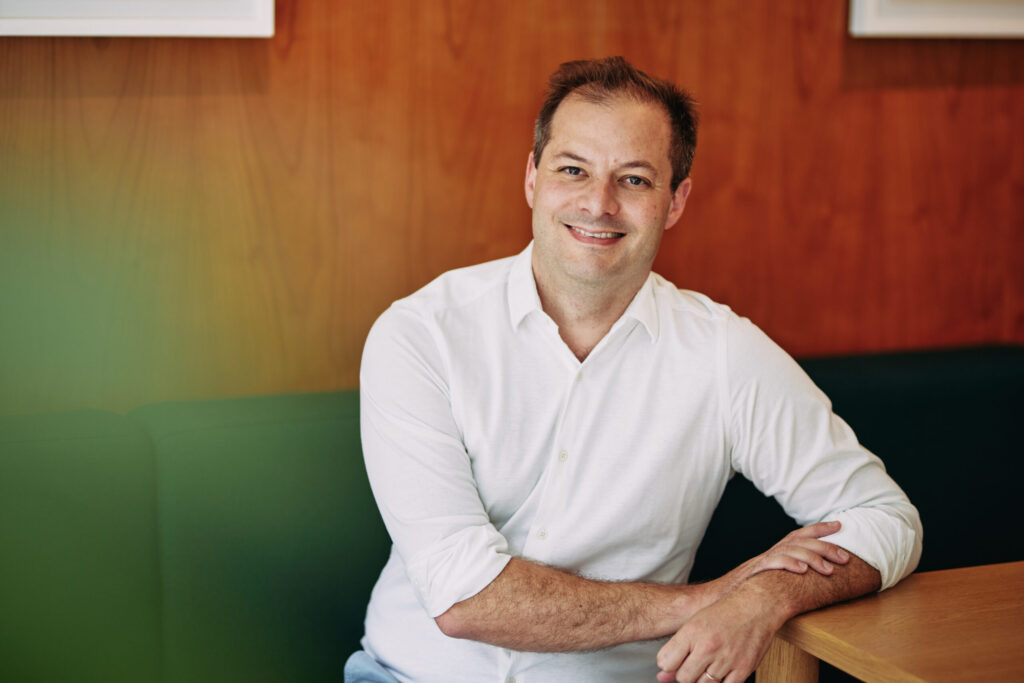Qover launched in 2016 and is already a global, household name. Driven by its dynamic co-founders, Quentin Colmant and Jean-Charles Velge, the pair were inspired by the fintech Stripe and decided to apply similar thinking to a new kind of insurtech.
Qover is now a buzzword in the insurtech marketplace. The award-winning startup, headquartered in Belgium, has transitioned to a scale-up in a few short years, pioneering a transformative path for the insurance sector. Since its inception, both co-founders have prioritised simplicity, transparency, and cross-border accessibility — and it’s a model that has already seen phenomenal success.
Last year, Qover even received an award for its pioneering technology, from the World Economic Forum. We caught up with CEO Quentin Colmant to find out more.
Let’s start at the beginning. How did you end up in the insurance industry?
I have a very big theory that everyone who gets into the insurance industry does so by accident – and honestly, I’m no different.
Fact is that I graduated with an MBA and two Masters’ degrees, one in engineering science and applied mathematics and one in finance. So two very different stories, quite nerdy, techy, with lots of mathematical analytics.
It was in June ’07, and at that time, everyone was looking to get into investment banking in London and I was applying everywhere.
And at the time, I recalled that when I was seven years old, I ran a small marathon, I think it was five kilometres. At the end, I got a pin, with the brand of AGF, which stands for Assurance Général de of France – a big French company that was acquired by Allianz in 2007.
And I don’t know why I recalled that when I was applying everywhere, but I sent my curriculum vitae to this company, and actually, they interviewed me, and then offered me a job as the chief of staff of the COO!
I was very excited by this opportunity – and to have a very strong mentor heading up such a big company.
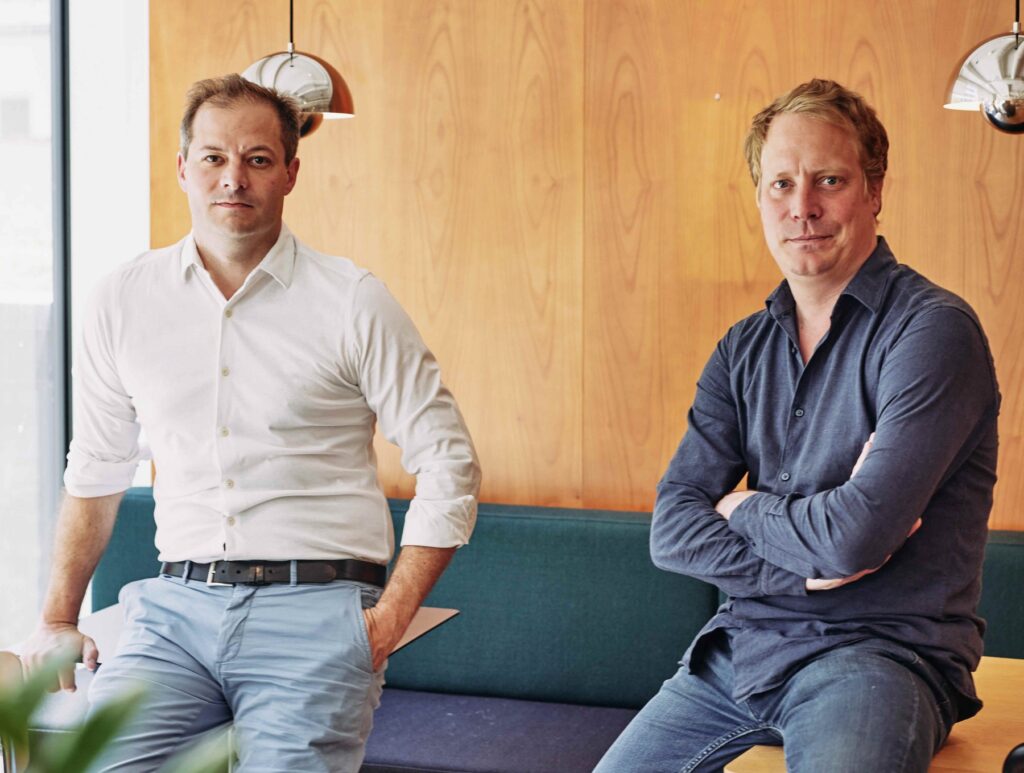
You spent eight years at Allianz in a few different roles. Tell us about that time.
When you start a career, the most important thing is to get into what I call a learning school. And when you get into a company, an industry and you really put your hands into the dirt and get things done and be part of the operational workings of a company.
I think this is an excellent place to learn how to become a professional, to understand the industry, to understand the complexity and the problems of the industry and the solutions that we can bring.
I’ve had the chance to gain very deep knowledge of the insurance world. I’ve done several roles such as the chief of staff of the COO initially, where I was a bit like the internal consultant working on the organisation. I also managed the Operation department of Personal Lines P&C, so non-life insurance. I was involved when Allianz Belgium and Allianz Netherlands merged, where I served as a deputy Belgian for the migration and the merger.
So, it was a totally different kind of learning experience. I also ran a massive programme, merging the insurance product portfolio of different countries, which actually helped me a lot to think about being pan-European when it came to Qover.
I also spent two years in business development, focusing on life and health insurance. It may not sound very glamorous from the outside, but it provided me with all the skill sets to deeply understand the insurance industry. During that time, I was also quite exposed to the headquarters, having a lot of interactions with them. I think the great thing is that during that period, they also sponsored me to pursue an MBA.
So, I went to Berlin at the European School of Management and Technology, completed my MBA, and retained my full salary, company car, and even my bonus for that year. So, it became clear to me that in a large corporation, you always earn your bonus regardless of the work you do. It was a fantastic experience.
In 2016, you decided to launch Qover. What prompted that move? Why did you decide to go out on your own?
In those kinds of stories, there are always a lot of different elements. But the main driver was this: I did an MBA after four years at Allianz.
Let’s be clear, when you do an MBA, it opens so many doors. It was an eye-opener to be with a lot of people coming from different horizons, cultures, and countries. It’s kind of a booster, and I realised, “I can still do whatever I want.”
But of course, I had to stay for three years at Allianz as that was the agreement in my contract. Around that time, in 2012, my wife, who sells artwork, asked me if I could build a website for her to sell artwork online. Today, of course, we have platforms like Shopify, which make it very easy to launch such a business. However, 12 years ago, it was not the case. So, I built this website and had to integrate a payment provider solution.
By accident, I found something— a small company called Stripe — and I became a beta tester in Belgium and implemented Stripe in this online art gallery. I was like, ‘wow, that’s so cool. Is there a way to build something as simple and clean as Stripe, but where we could enable any kind of business in a very plug-and-play approach to add insurance products and upsell or integrate insurance as part of the value proposition?’
I think that was the triggering point. You think of those banks transforming into neo-banks, and it offers plenty of opportunities. And you think of the Stripe of insurance, it has a lot of similarities with what we call embedded insurance with a tech-driven layer.
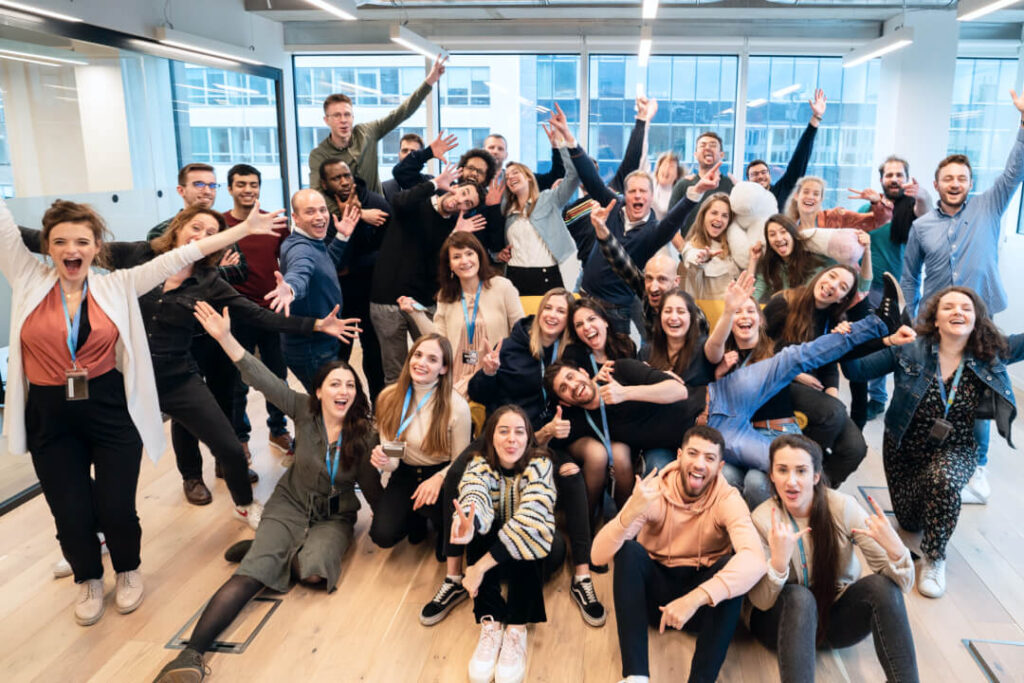
Reflecting on the early years of launching your startup, what were the biggest challenges you faced?
There’s a myth about launching a company. In short, it’s way easier than you think. But when we are a small person in a big corporate world, we fear doing it. On the first day I left my job to start Qover, I was outside of the building of Allianz in the middle of Brussels. I had no company car, I had no mobile phone – and that day I had forgotten my wallet. So I had to ask people in the street for two euros to pay my metro ticket to get back home – and it was a pretty scary feeling.
Regarding my day to day as an entrepreneur, what are the things that are really tough? Well, first of all it’s a question of age, because at the same time I’m scaling my business, I’m also scaling up my family.
I went from being married to being married with three kids. As an entrepreneur, you never switch off your brain – even at night, even on holidays. And let’s be clear, it has an impact on the level of stress. It has an impact on your health. Sometimes I think it’s slowly killing me, but that’s part of this crazy journey. You continuously have to deal with thousands of problems and it’s kind of a never ending story.
You never have the feeling, ‘I’m at home, I’m done with work today.’ You always have more problems. And by the way, if people contact me, it’s always for big problems. So it’s tough and of course it’s a scale up world and a startup world – and every day you have to fight for your survival. You have to manage cash. You have to think about fundraising and so on. And so a lot of different facets – but, you just do it.
How does Qover distinguish itself in 2024 compared to when you began in 2016, especially considering the increased competition in the market?
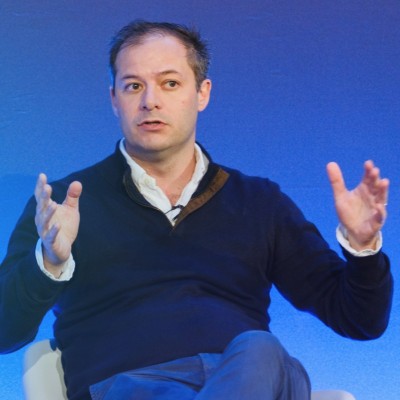
Yeah, as always I think there are different elements that we should look at. I think first of all, if you take the embedded insurance space, Qover is focusing on being a European champion. And if you look, it’s true that there are a few other embedded insurance players, but the bigger ones are much more active in the US or in Asia. And while they have a few deals in the European market, Europe’s still their weak market. That’s number one.
I think also when we started in 2016, it was an advantage to be in a small country like Belgium, because you directly think ‘multi-country and pan-European’. From day one we had this vision to build a platform that could enable us, by configuration only, to launch any insurance product in any market, in any language and that would comply with any local regulation.
Can you elaborate on the key features that make Qover unique in the Insurtech landscape?
Absolutely. We are pretty unique because a lot of insurtechs have been focused on one single product or one single market and we are literally multi-product and multi-country. Also if you look at a lot of embedded insurance players, a lot of them have been focused on small enhancement products like extended warranty cancellation, purchase protection.
At Qover, we think of it as a more complex and holistic insurance solution. We do motor insurance, we do property insurance, we do travel insurance. So it’s very broad and it makes a lot of sense because insurance is ultimately about managing your technical loss and technical profit. Maybe one year the travel industry is on a downward slump and you lose a lot of money. But then balance that out because you earn money in automotive – and vice versa.
Qover won an award from the World Economic Forum – the Technology Pioneer Award. Has that opened many doors for you or expanded your scaling story?
Yes. I think when you try to find differentiators within your value proposition, a lot of insurtech’s today will say, ‘I have a tech layer,’ or, ‘I can get the deals done,’ and so on and so forth. So you always need to kind of find a differentiator. We turned to the World Economic Forum to craft Qover’s story, showcasing how we stand out from the crowd in the marketplace.
I believe the first concept, which is more tech-driven, revolves around what we term “embedded insurance orchestration.” The term “orchestration” aptly captures the complexity involved in managing a pan-European insurance program, especially concerning local regulations and technological integration. Additionally, we draw inspiration from the World Economic Forum to emphasise the significance of insurance coverage in constructing a global safety net.
A loss ratio of 0% indicates no claims paid, while 100% indicates claims equal to premiums, rendering no profit. Insurtech companies aiming to better society should prioritise maximising the loss ratio rather than minimising it, while maintaining profitability.
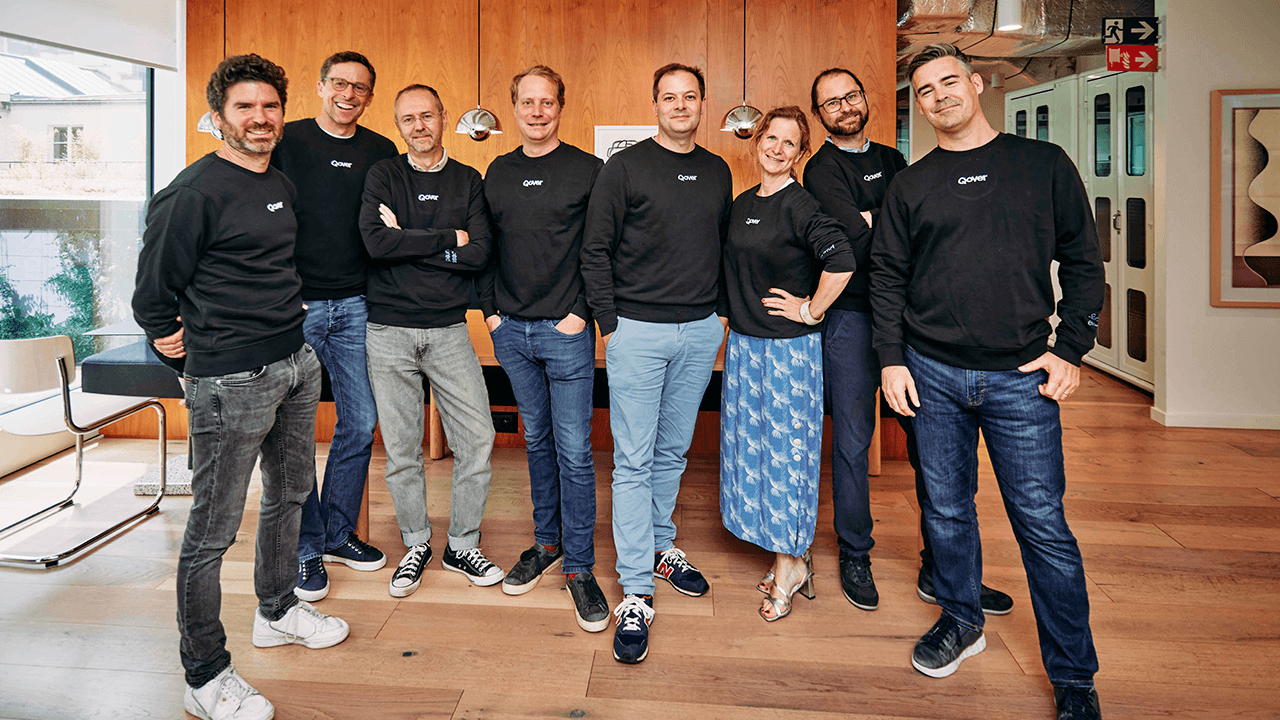
As a CEO and founder, what inspires you in the marketplace today?
First of all, on a human level, I have immense respect for all the CEOs and founders of any insurtech, whether they failed or succeeded, because I know what the journey entails. It requires a lot of resilience and determination.
Even in failure, there should be a sense of support towards the founder and the team. What inspires me the most, I would say, is people who think about InsureTech for building a much better customer experience. Those who look at the fundamentals of insurance, scaling, offering a second chance in life, fighting inequalities, and reorganising the way we take care of people.
Companies like Alan in health insurance that try to build a better value proposition, or Wakam that has launched zero-margin products focusing on insurance inclusion. People who bring this narrative about insurance inclusion, global safety nets, rethinking insurance to make a better experience, and truly caring, are fundamentally inspiring.
Join Quentin Colmant in London at Insurtech Insights Europe, 2024
Qover CEO and Co-Founder, Quentin Colmant will be taking to the stage at Insurtech Insights Europe 2024, at the InterContinental London – The 02 on March 20th, in the live panel session: Leveraging Partnerships in Distribution. He will be joined by Tokio Marine’s Masashi Namtame, Domingos Bruges, CEO and Co-Founder of Habitat Analytics and Dan Bratshpis, CEO and Founder of Inshure. The session will be moderated by Lisa Wardlaw. For more information on the conference agenda, visit here:
Interview by Joanna England
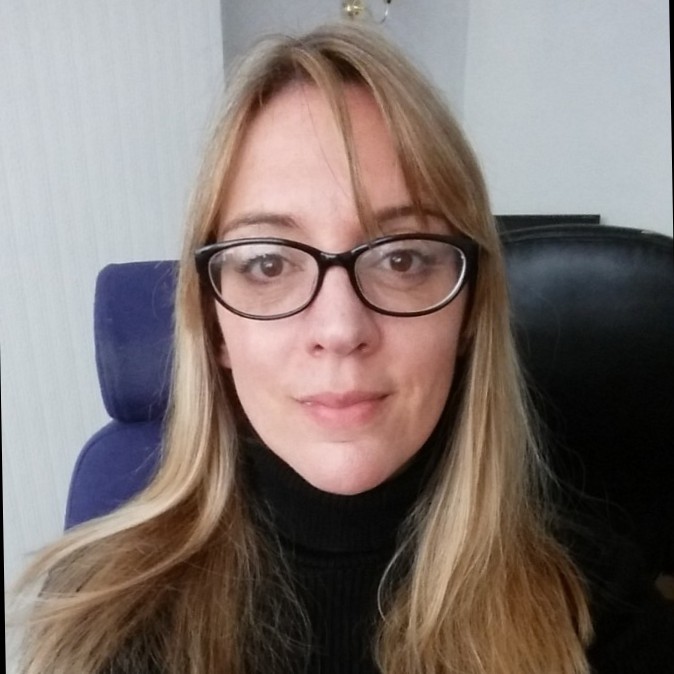
Joanna England is an award-winning journalist and the Editor-in-Chief for Insurtech Insights. She has worked for 25 years in both the consumer and business space, and also spent 15 years in the Middle East, on national newspapers as well as leading events and lifestyle publications. Prior to Insurtech Insights, Joanna was the Editor-in-Chief for Fintech Magazine and Insurtech Digital. She was also listed by MPVR as one of the Top 30 journalist in Fintech and Insurtech in 2023.

